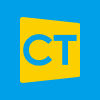【Performance Appraisal Guide】Master Your Annual Appraisal: Essential Phrases and Tips
CTgoodjobs' Editor
As the year draws to a close and the new year begins, Hong Kong employees are preparing for their performance appraisal reports and self-assessments, hoping to use this opportunity to request a promotion and salary increase. But do you know how to write a self-assessment that demonstrates your capabilities without sounding overly boastful? This article lists useful phrases for 10 key appraisal categories, making it easy for you to complete your self-evaluation.
Table of Content
- 1Writing Effective Appraisal Comments
- Appraisal Useful Phrases: Personal Achievements
- Appraisal Useful Phrases: Attendance & Punctuality
- Appraisal Useful Phrases: Communication Skills
- Appraisal Useful Phrases: Creativity
- Appraisal Useful Phrases: Productivity
- Appraisal Useful Phrases: Learning Ability
- Appraisal Useful Phrases: Flexibility
- Appraisal Useful Phrases: Planning
- Appraisal Useful Phrases: Problem Solving
- Appraisal Useful Phrases: Leadership & Supervisory Skills
- 2Tips for Writing Your Performance Appraisal
- 3Common Questions about Annual Appraisal
- 4Appraisal Sample Phrases to Avoid
Writing Effective Appraisal Comments
A well-written performance appraisal requires specific and measurable appraisal comments. Here are sample phrases across 10 key categories to help you complete your appraisal report:
Appraisal Useful Phrases: Personal Achievements
- Achieved the goal [include specific goal] set in [the specific period].
- Provided strong evidence of [specific project/target accomplishment].
- Improved/increased production by W% through [specific task].
Appraisal Useful Phrases: Attendance & Punctuality
4. Have an excellent attendance record for the year.
5. Is always respectful by arriving on time for meetings and appointments.
6. Completes deadlines in a timely manner.
Appraisal Useful Phrases: Communication Skills
7. Establishes effective working relationships within the team and with other teams.
8. Helps others achieve tasks to complete the overall project and contributes with ideas and input.
9. Builds company morale and cooperation through effective group facilitation.
Appraisal Useful Phrases: Creativity
10. Develops and executes creative ideas in [specific task].
11. Seeks new ideas and thinks outside the box through detailed research and observation.
12. Develops creative strategies and demonstrates imaginative thinking when confronted with obstacles.
Appraisal Useful Phrases: Productivity
13. Consistently delivers beyond expectations and meets deadlines.
14. Meets output standards and performance goals.
15. Has made an outstanding contribution to the team and company's productivity levels.
Appraisal Useful Phrases: Learning Ability
16. Promotes a learning culture in a changing environment.
17. Continuously learns new methods, procedures, and trends.
18. Is a quick learner and an innovative team player who sincerely engages with teammates.
Appraisal Useful Phrases: Flexibility
19. Demonstrates the ability to come up with new solutions when old approaches are ineffective.
20. Shows improvement in taking on new tasks or adjusting workflows when the situation requires.
21. Uses constructive criticism to improve skills and work processes.
Appraisal Useful Phrases: Planning
22. Creates flexible plans to meet changing market demands.
23. Organizes and plans projects to avoid clutter and confusion.
24. Files tasks and projects systematically, tracking progress in detail.
Appraisal Useful Phrases: Problem Solving
25. Develops a practical approach and plan for solving problems.
26. Turns existing problems into opportunities with alternative solutions.
27. Analyzes critically before breaking down a problem.
Appraisal Useful Phrases: Leadership & Supervisory Skills
28. Understands the strengths of individuals and teams.
29. Is an effective motivator, delegating tasks to team members with a clear understanding of their responsibilities.
30. Maintains a positive work environment and encourages the growth of individual employees.
Tips for Writing Your Performance Appraisal
When preparing your appraisal report, consider these best practices:
- Use the company's standard appraisal template
- Include specific examples and metrics in your appraisal comments
- Be honest but highlight achievements
- Focus on both accomplishments and areas for improvement
- Keep records throughout the year to reference in your appraisal
Common Questions about Annual Appraisal
Self-assessment seems unfair, how should I approach writing it?
A: Before conducting your personal annual appraisal, review your performance over the past year and reflect on the following eight questions:
- What achievements in both life and work this year make you feel proud and satisfied?
- How did you allocate your time at work? Was it focused on reports, meetings, paperwork, or brainstorming?
- Are you satisfied with the work you're currently doing?
- What do you consider the most worthwhile investment you made this year?
- What was the biggest time-waster this year?
- Which area of your work would you like to do less of?
- What two lessons did you learn this year that you will never forget?
- If you had the opportunity to go back and change one thing at work, what would it be?
What are the "don’ts" or potential pitfalls in an appraisal?
Self-assessment seems unfair, how should I approach writing it?
A: Before conducting your personal annual appraisal, review your performance over the past year and reflect on the following eight questions:
- What achievements in both life and work this year make you feel proud and satisfied?
- How did you allocate your time at work? Was it focused on reports, meetings, paperwork, or brainstorming?
- Are you satisfied with the work you're currently doing?
- What do you consider the most worthwhile investment you made this year?
- What was the biggest time-waster this year?
- Which area of your work would you like to do less of?
- What two lessons did you learn this year that you will never forget?
- If you had the opportunity to go back and change one thing at work, what would it be?
What are the "don’ts" or potential pitfalls in an appraisal?
A: Celia Balson, former HR director and founder of Work Friendly, a talent recruitment consultancy, shared three common mistakes employees make during appraisals. Be cautious to avoid these errors to ensure a positive impression with your supervisor.
39
Not Understanding the Company’s Salary Review Cycle
Celia explains that many companies have a compensation philosophy aimed at fairness and consistency. HR departments typically establish standards for each position, including salary ranges. For example, if your company conducts annual appraisals and salary reviews, or quarterly reviews with set goals, understanding this timeline helps you know when to discuss salary adjustments and what is a reasonable request.
Ignoring the Importance of Written Records
It’s important to document key achievements that may be easily forgotten by your supervisor, especially when requesting a raise or bonus. Celia suggests that you communicate your salary increase or bonus proposal in writing, clearly stating the conditions. For instance, "
Being Misled by Inflation
Celia points out that many companies factor in inflation and rising living costs when considering salary adjustments. If you do not receive a raise or bonus, do not immediately assume that you have done something wrong or that the company is treating you unfairly. Different financial circumstances at each company can affect salary increases, and employers budget salary increments based on performance, department, and overall profitability. For example, if the company performs well in the second quarter, early in the third quarter could be a good time to negotiate. Conversely, if the company had a poor quarter, you may need to wait patiently.
Appraisal Sample Phrases to Avoid
When writing appraisal comments, avoid:
- Vague or generic statements
- Emotional language
- Comparisons to other employees
- Focusing only on recent events
- Exaggeration or understatement
【2025 CV Templates】 How to write Hong Kong CV? (with CV Samples and Tips)
【2025 Interview Tips】1 Minute Self-introduction Template + 5 Key Points for Job Interviews
最新專訪片︰
【Office豪華旅行團】安永會計重視多元和企業社會責任 培養包容性的企業文化

 Discovery Feed is launched!
Discovery Feed is launched!





 Follow CTgoodjobs for the latest career news, hot topics and recommended jobs!
Follow CTgoodjobs for the latest career news, hot topics and recommended jobs!